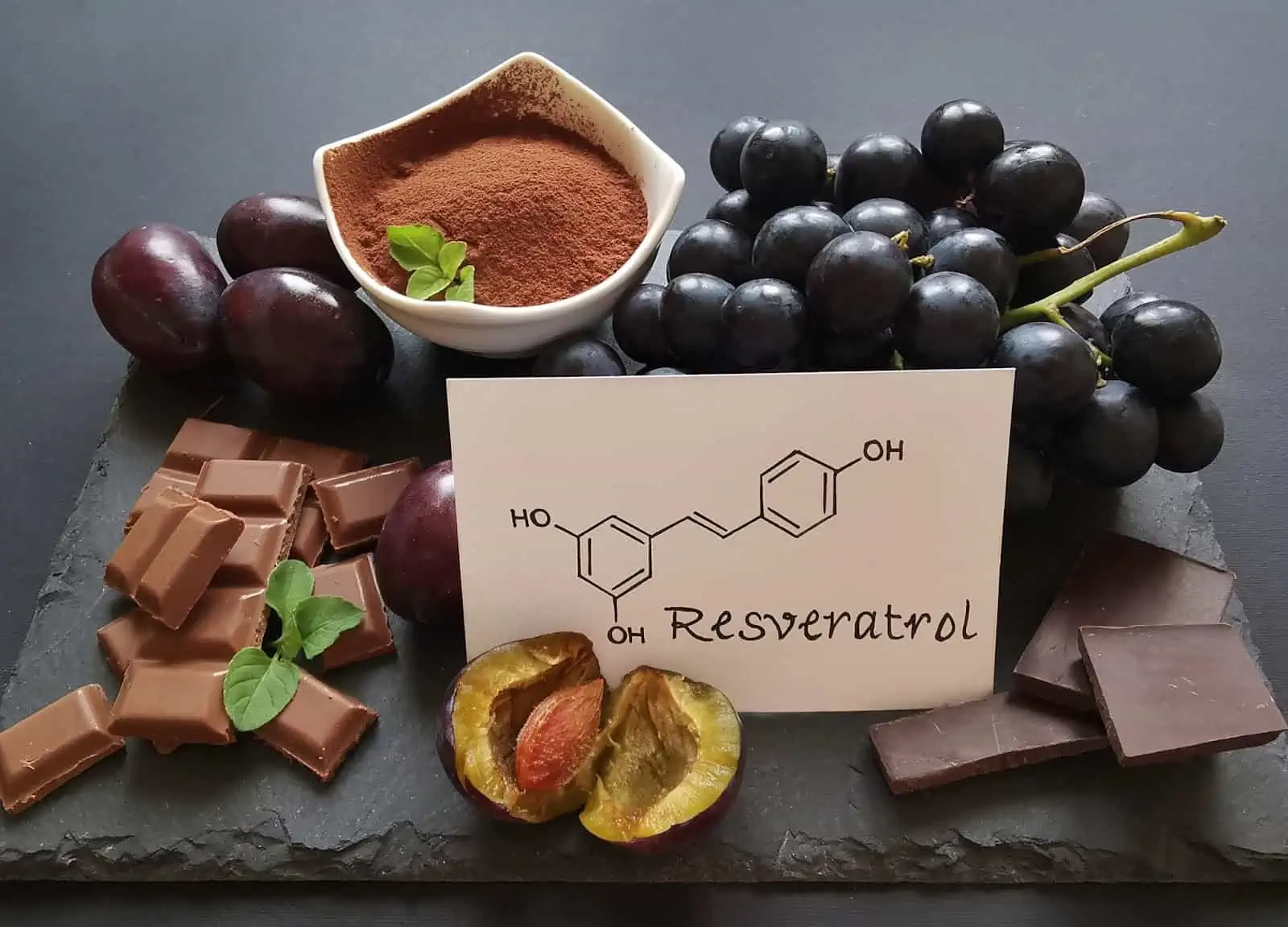by William Clearfield, D.O. for Longevinex
I watched a very popular 1967 movie last week, ‘The Graduate.’ In it, 21-year-old Benjamin, played by Dustin Hoffman, is advised at his college graduation party about a future commodity he should consider for his career.
“I have one word for you,” says Mr. McGuire, one of Benjamin’s parents’ wealthy friends. “Plastics. The future is plastic.”
And I, dear reader, have one word for you:
“Methylation.”
Go ahead, try pronouncing it: “Meth-el-ay-shun.” It’s one of those complex scientific terms my mother loved to hear me say.
“Oh, my son, the doctor! He uses such fancy, schmancy words. I don’t understand half of them, but listen to him talk! Did I get my money’s worth or what?”
“Yes, Mom,” I said.
Every mother’s dream. With less than an estimated 0.2% of the United States adult population even aware of this term, why should you, dear reader, be interested?
Let me explain why.
Methylation is a biochemical process where a molecule called a methyl group, composed of one carbon atom bound to three hydrogen atoms (-CH3), is added to another molecule.
But remember, Mom was so proud to hear that, or any explanation. “My son, the doctor!”
Adequate methylation is essential for countering the aging process. It is crucial for maintaining DNA integrity and repair mechanisms. As one matures (Mom would never say ‘ages’; ‘age’ and ‘old’ are four-letter words in her book), DNA damage accumulates, leading to cellular dysfunction and disease.
Adequate methylation contributes to DNA repair and maintenance, influencing how genes are turned on or off and slowing down age-related changes. It reduces the risk of age-related diseases such as cardiovascular disease, neurodegenerative deterioration, and cancers.
Your liver, the body’s primary detoxification organ, uses a methylation pathway, specifically B6, B12, folate, and SAMe, to attach various molecules to toxins, making them water-soluble for excretion.
During methylation, liver cells add a methyl group to a toxin, making it less harmful and easier to eliminate. The nutrients required for this process include vitamins B6, B12, folate, and SAMe.
Methylation is also necessary for producing glutathione, our most potent protector against free radical and toxin damage.
Methylation regulates gene expression. With aging, changes in the methylation patterns of genes occur, leading to altered gene function. Proper methylation helps maintain regular gene activity, essential for healthy aging. It prevents tumor cell growth by silencing oncogenes and stimulating tumor suppressor genes, which is crucial as cancer is more common in older age.
Cellular senescence, a cell’s cessation of division, is a crucial indicator of aging. Methylation plays a pivotal role in cellular senescence by protecting telomeres, the protective caps at the ends of chromosomes. Telomeres serve as “buffers” against the wear and tear associated with aging.
Methylation plays a role in converting homocysteine into methionine, mitigating age-related health risks. High levels of homocysteine, due to poor methylation, are associated with cardiovascular diseases, cognitive decline, and bone health issues.
Critical for preserving brain function, methylation is involved in synthesizing neurotransmitters like serotonin and dopamine and in neurotransmitter metabolism. Poorly methylated patients are more susceptible to neurological disorders such as Alzheimer’s, Parkinson’s, and Huntington’s Disease, autism spectrum disorders, cognitive decline, mood disorders, depression, and anxiety. Adequate methylation is critical for age-defying brain function and overall health.
Balanced methylation is a fundamental building block of the immune system. Sufficient methylation prevents autoimmune conditions.
Proper methylation regulates the expression of genes involved in and reduces chronic inflammatory responses.
Lifestyle changes you can undertake to improve methylation include:
- Balanced Diet: Eat a diet rich in natural, whole foods, especially those high in folate and B vitamins, like leafy greens, legumes, nuts, and whole grains.
- Reduced Alcohol Consumption: Excessive alcohol interferes with the absorption of B vitamins, which are necessary for proper methylation.
- Stress Reduction: Incorporate stress-management techniques like mindfulness, yoga, or meditation. Choose methods that suit your personality so they are enjoyable.
- Regular Exercise: Physical activity supports healthy methylation.
- Sleep: Good sleep hygiene is essential for maintaining adequate methylation processes and optimal health.
- Environmental Toxins: Avoid exposure to pollutants, heavy metals, and chemicals to improve methylation.
- Smoking: The adverse health effects of smoking interfere with methylation. Quitting is advised.
- Weight: Maintain a healthy weight, as obesity hinders methylation.

Nutraceutical interventions to improve methylation include:
- Vitamin B12, Folate (B9), and Vitamin B6: These vitamins work together to produce S-adenosylmethionine (SAMe), involved in immune function and mood. Deficiencies in these vitamins can lead to various health issues. Recommended doses include B12 500 mcg minimum per day, Folate 400 mcg/day, and B6 (pyridoxal 5′-phosphate) 1-2 mg/day.
- Betaine (Trimethylglycine): Provides methyl groups for homocysteine, creatine, and carnitine, balances fluids, and has positive effects on fatty infiltration of the liver. Recommended dose: 1.5-3 mg/day.
- Choline: Supports cognitive function, fetal neural development, and detoxification. Recommended dose: Adult female 425 mg/day; Adult male 550 mg/day.
- Magnesium: Acts as a cofactor in the methylation pathway, aids in DNA synthesis and repair, supports SAMe production, and is essential for neurotransmitter formation. Recommended dose: 300-400 mg/day.
- Zinc: A methyl donor that stabilizes DNA and RNA. Deficiency leads to cell death. Recommended dose: Females 8 mg/day, Males 11 mg/day.
- Milk Thistle: A liver detox agent that acts as an antioxidant and anti-inflammatory agent. Recommended dose: 140-210 mg 2-3x/day.
- Green Tea Extract: Reduces the effect of DNA methyltransferase 1 (DNMT1), a suppressor of tumor genes. It is neuroprotective and cardioprotective, and an antioxidant. Recommended dose: 1-2 grams of tea per cup, 2-3 times daily.
- SAMe: Provides a leading methyl donor for various bodily functions. Recommended dose for mood support: 400-1600 mg in 2-4 doses; for joint support: 600-1200 mg/day; for liver dysfunction: 600-1200 mg/day.
- Methylation Adaptogens: These include Curcumin, Anthocyanins, Quercetin, Rosmarinic Acid, Lycopene, and Sulforaphane. They have various health benefits, including anti-inflammatory and antioxidant effects, and are found in a variety of foods and herbal extracts.
One Last Wrinkle in the Pie: The MTHFR Methylation Genetic Defect

With our newfound understanding of the pivotal role of the methylation pathway in maintaining well-being, we must mention the MTHFR (methylenetetrahydrofolate reductase) genetic defect.
The MTHFR gene encodes an enzyme essential for converting a form of folic acid (Vitamin B9) into another, which is necessary for converting homocysteine into methionine. There are at least 40 MTHFR genetic defect variations with symptoms ranging from ocular issues to cognitive deficits.
The most common MTHFR variants are linked to increased homocysteine levels in the blood, indicating an increased risk of various health issues.
Associated medical syndromes with MTHFR defects include ADHD, autism, autoimmune diseases, cardiovascular disease, chronic fatigue, colon cancer, digestive issues, hormonal issues, migraines, and schizophrenia.
Diagnosis of MTHFR defects involves measuring homocysteine levels in the blood and testing for MTHFR variants. Tests for folic acid, B6, and B12 levels may also indicate an MTHFR defect.
Treatment:
- Dietary Changes: Increase intake of natural folate-rich foods.
- Supplementation: Use Methylfolate instead of folic acid, add B vitamins, especially vitamin B12, and Omega 3 Fatty Acids.
- Lifestyle Modifications: Reducing alcohol intake, avoiding smoking, and minimizing exposure to toxins improve methylation efficiency.
- Regular Exercise: Improves overall health and aids the body’s methylation processes.
- Homocysteine Levels: Maintain “Normal Levels” < 11 umol/L, “Optimal Levels” < 10 umol/L.
- Medication Review: Review medications and supplements that may interfere with folate metabolism.
- Genetic Counseling: Beneficial for those considering starting a family, as MTHFR mutations can impact pregnancy and fetal development.
Conclusion
Ensuring optimal methylation levels plays a key role in slowing or reversing the impact of age-related illnesses. It contributes significantly towards promoting healthy aging by sustaining DNA integrity, regulating gene expression, affecting cellular senescence and telomere length, regulating homocysteine levels, bolstering neurological health, and mitigating chronic inflammation.
Knowledge is indeed power. We at Longevinex are committed to providing you with valuable information to preserve and enhance your health and well-being!
Thanks for the great head start, Mom!
Sincerely,
Dr. Bill Clearfield
References
1. https://longevinex.com/articles/
2. Menezo Y, Clement P, Clement A, Elder K. Methylation: An Ineluctable Biochemical and Physiological Process Essential to the Transmission of Life. Int J Mol Sci. 2020 Dec 7;21(23):9311. doi: 10.3390/ijms21239311. PMID: 33297303; PMCID: PMC7730869.
3. Xie J, Xie L, Wei H, Li XJ, Lin L. Dynamic Regulation of DNA Methylation and Brain Functions. Biology (Basel). 2023 Jan 18;12(2):152. doi:
10.3390/biology12020152. PMID: 36829430; PMCID: PMC9952911. 4. Hodges RE, Minich DM. Modulation of Metabolic Detoxification Pathways Using Foods and Food-Derived Components: A Scientific Review with Clinical Application. J Nutr Metab. 2015;2015:760689. doi: 10.1155/2015/760689. Epub 2015 Jun 16. PMID: 26167297; PMCID: PMC4488002.
5. https://www.ifm.org/news-insights/detox-food-plan/
6. Minich DM, Brown BI. A Review of Dietary (Phyto)Nutrients for Glutathione Support. Nutrients. 2019 Sep 3;11(9):2073. doi: 10.3390/nu11092073. PMID: 31484368; PMCID: PMC6770193.
7. Razin A, Cedar H. DNA methylation and gene expression. Microbiol Rev. 1991 Sep;55(3):451-8. doi: 10.1128/mr.55.3.451-458.1991. PMID: 1943996; PMCID: PMC372829.
8. https://www.nia.nih.gov/news/does-cellular-senescence-hold-secrets-healthier-ag ing
9. Vaccaro JA, Naser SA. The Role of Methyl Donors of the Methionine Cycle in Gastrointestinal Infection and Inflammation. Healthcare (Basel). 2021 Dec 29;10(1):61. doi: 10.3390/healthcare10010061. PMID: 35052225; PMCID: PMC8775811.
10.Xie J, Xie L, Wei H, Li XJ, Lin L. Dynamic Regulation of DNA Methylation and Brain Functions. Biology (Basel). 2023 Jan 18;12(2):152. doi:
10.3390/biology12020152. PMID: 36829430; PMCID: PMC9952911.
11. Epigenetic regulation of gene expression: how the genome integrates intrinsic and environmental signals. Jaenisch R, Bird A. Nat Genet. 2003;33 Suppl:245–254.
12. Calle-Fabregat C, Morante-Palacios O, Ballestar E. Understanding the Relevance of DNA Methylation Changes in Immune Differentiation and Disease. Genes (Basel). 2020 Jan 18;11(1):110. doi: 10.3390/genes11010110. PMID: 31963661; PMCID: PMC7017047.
13. Yamashita, S., Nanjo, S., Rehnberg, E. et al. Distinct DNA methylation targets by aging and chronic inflammation: a pilot study using gastric mucosa infected with Helicobacter pylori. Clin Epigenet 11, 191 (2019).
https://doi.org/10.1186/s13148-019-0789-8
14. Allison J, Kaliszewska A, Uceda S, Reiriz M, Arias N. Targeting DNA Methylation in the Adult Brain through Diet. Nutrients. 2021 Nov 8;13(11):3979. doi: 10.3390/nu13113979. PMID: 34836233; PMCID: PMC8618930.
15. Zakhari S. Alcohol metabolism and epigenetics changes. Alcohol Res. 2013;35(1):6-16. PMID: 24313160; PMCID: PMC3860421.
16. Hing B, Braun P, Cordner ZA, Ewald ER, Moody L, McKane M, Willour VL, Tamashiro KL, Potash JB. Chronic social stress induces DNA methylation changes at an evolutionary conserved intergenic region in chromosome X. Epigenetics. 2018;13(6):627-641. doi: 10.1080/15592294.2018.1486654. Epub 2018 Aug 5. PMID: 29943663; PMCID: PMC6140912.
17. Światowy WJ, Drzewiecka H, Kliber M, Sąsiadek M, Karpiński P, Pławski A, Jagodziński PP. Physical Activity and DNA Methylation in Humans. Int J Mol Sci. 2021 Nov 30;22(23):12989. doi: 10.3390/ijms222312989. PMID: 34884790; PMCID: PMC8657566.
18. Lahtinen, A., Puttonen, S., Vanttola, P. et al. A distinctive DNA methylation pattern in insufficient sleep. Sci Rep 9, 1193 (2019).
https://doi.org/10.1038/s41598-018-38009-0
19. Lahtinen, A., Puttonen, S., Vanttola, P. et al. A distinctive DNA methylation pattern in insufficient sleep. Sci Rep 9, 1193 (2019).
https://doi.org/10.1038/s41598-018-38009-0
20.Maas, S.C.E., Mens, M.M.J., Kühnel, B. et al. Smoking-related changes in DNA methylation and gene expression are associated with cardio-metabolic traits. Clin Epigenet 12, 157 (2020). https://doi.org/10.1186/s13148-020-00951-0
21. Samblas M, Milagro FI, Martínez A. DNA methylation markers in obesity, metabolic syndrome, and weight loss. Epigenetics. 2019 May;14(5):421-444. doi:
10.1080/15592294.2019.1595297. Epub 2019 Mar 27. PMID: 30915894; PMCID: PMC6557553.
22.https://www.mountsinai.org/health-library/supplement/vitamin-b12-cobalamin#:~:t ext=Vitamin%20B12%20works%20closely%20with,in%20immune%20function% 20and%20mood.
23. Troen AM. Folate and vitamin B12: function and importance in cognitive development. Nestle Nutr Inst Workshop Ser. 2012;70:161-71. doi: 10.1159/000337684. Epub 2012 Aug 31. PMID: 25825305.
24. https://drhyman.com/blog/2011/02/08/maximizing-methylation-the-key-to-healthy aging-2/
25. chrome-extension://efaidnbmnnnibpcajpcglclefindmkaj/https://www.mhlw.go.jp/file /06-Seisakujouhou-10900000-Kenkoukyoku/Overview.pdf
26. https://examine.com/supplements/betaine/#examine-database
27.Jiang X, Greenwald E, Jack-Roberts C. Effects of Choline on DNA Methylation and Macronutrient Metabolic Gene Expression in In Vitro Models of Hyperglycemia. Nutr Metab Insights. 2016 Apr 7;9:11-7. doi:
10.4137/NMI.S29465. PMID: 27081315; PMCID: PMC4825771.
28.https://mthfrsupport.com.au/2018/12/magnesium-and-methylation-from-heart-to-b rain-health-what-is-the-best-form-for-you/
29. Azimi Z, Isa MR, Khan J, Wang SM, Ismail Z. Association of zinc level with DNA methylation and its consequences: A systematic review. Heliyon. 2022 Sep 28;8(10):e10815. doi: 10.1016/j.heliyon.2022.e10815. PMID: 36203899; PMCID: PMC9530842.
30. Achufusi TGO, Patel RK. Milk Thistle. [Updated 2022 Sep 12]. In: StatPearls [Internet]. Treasure Island (FL): StatPearls Publishing; 2023 Jan-. Available from: https://www.ncbi.nlm.nih.gov/books/NBK541075/
31. Eugenia C. Yiannakopoulou; Targeting DNA Methylation with Green Tea Catechins. Pharmacology 1 May 2015; 95 (3-4): 111–116. https://doi.org/10.1159/000375503
32.https://www.amsbio.com/s-adenosylmethionine-and-methylation/#:~:text=SAM% 2De%20plays%20a%20central%20role%20in%20cellular,as%20well%20as%20b eing%20a%20precursor%20molecule
33. Hassan Faiz-ul, Rehman Muhammad Saif-ur, Khan Muhammad Sajjad, et.al., Curcumin as an Alternative Epigenetic Modulator: Mechanism of Action and Potential Effects; Frontiers in Genetics,(10)2019;
https://www.frontiersin.org/articles/10.3389/fgene.2019.00514:DOI=10.3389/fgen e.2019.00514 ISSN=1664-8021
34. Fournier-Level, A., Hugueney, P., Verriès, C. et al. Genetic mechanisms underlying the methylation level of anthocyanins in grape (Vitis viniferaL.). BMC Plant Biol 11, 179 (2011). https://doi.org/10.1186/1471-2229-11-179
35. Warnsmann Verena, Hainbuch Saskia, Osiewacz Heinz D., ‘Quercetin-Induced Lifespan Extension in Podospora anserina Requires Methylation of the Flavonoid by the O-Methyltransferase PaMTH1,’Frontiers in
Genetics,(9)2018;URL=https://www.frontiersin.org/articles/10.3389/fgene.2018.0 0160 DOI=10.3389/fgene.2018.00160 ISSN=1664-8021
36. Baba S, Osakabe N, Natsume M, Terao J. Orally administered rosmarinic acid is present as the conjugated and/or methylated forms in plasma, and is degraded and metabolized to conjugated forms of caffeic acid, ferulic acid and m-coumaric acid. Life Sci. 2004 May 28;75(2):165-78. doi: 10.1016/j.lfs.2003.11.028. PMID: 15120569.
37. Hamid Marzag, Pierre Warnault, Khalid Bougrin, et. al., Chapter 7 – Natural Polyphenols as Potent Inhibitors of DNA Methyltransferases, Editor(s): Atta-ur-Rahman, Studies in Natural Products Chemistry, Elsevier, Volume 41, 2014, Pages 195-223, ISSN 1572-5995, ISBN 9780444632944, https://doi.org/10.1016/B978-0-444-63294-4.00007-3.
38. Fu LJ, Ding YB, Wu LX, Wen CJ, Qu Q, Zhang X, Zhou HH. The Effects of Lycopene on the Methylation of the GSTP1 Promoter and Global Methylation in Prostatic Cancer Cell Lines PC3 and LNCaP. Int J Endocrinol.
2014;2014:620165. doi: 10.1155/2014/620165. Epub 2014 Oct 20. PMID: 25389438; PMCID: PMC4217342.
39. https://www.enzolifesciences.com/science-center/technotes/2012/september/sulf oraphane-appears-to-prevent-cancer-through-two-distinct-epigenetic-mechanism s/
40. Gamarallage V.K. Senanayake, Ali Banigesh, Lingyun Wu, Paul Lee, Bernhard H.J. Juurlink, The Dietary Phase 2 Protein Inducer Sulforaphane Can Normalize the Kidney Epigenome and Improve Blood Pressure in Hypertensive Rats, American Journal of Hypertension, Volume 25, Issue 2, February 2012, Pages 229–235, https://doi.org/10.1038/ajh.2011.200
41. https://medlineplus.gov/genetics/gene/mthfr/
42. https://lpi.oregonstate.edu/mic/health-disease/high-homocysteine
43.Meng X, Zheng JL, Sun ML, Lai HY, Wang BJ, Yao J, Wang H. Association between MTHFR (677C>T and 1298A>C) polymorphisms and psychiatric disorder: A meta-analysis. PLoS One. 2022 Jul 14;17(7):e0271170. doi: 10.1371/journal.pone.0271170. PMID: 35834596; PMCID: PMC9282595.
44.Dean L. Methylenetetrahydrofolate Reductase Deficiency. 2012 Mar 8 [Updated 2016 Oct 27]. In: Pratt VM, Scott SA, Pirmohamed M, et al., editors. Medical Genetics Summaries [Internet]. Bethesda (MD): National Center for Biotechnology Information (US); 2012-. Available from:
https://www.ncbi.nlm.nih.gov/books/NBK66131/
45. https://www.thebespokenutritioncoach.co.uk/mthfr-diet/#:~:text=To%20support%2 0overall%20health%2C%20people,as%20an%20%E2%80%9CMTHFR%20diet %E2%80%9D.
46.https://mthfrsupport.com.au/2020/08/what-you-need-to-eat-and-avoid-for-mthfr/ 47.https://www.medicalnewstoday.com/articles/326181
48.Dinç N, Yücel SB, Taneli F, Sayın MV. The effect of the MTHFR C677T mutation on athletic performance and the homocysteine level of soccer players and sedentary individuals. J Hum Kinet. 2016 Jul 2;51:61-69. doi:
10.1515/hukin-2015-0171. PMID: 28149369; PMCID: PMC5260551.
49. Dean L. Methylenetetrahydrofolate Reductase Deficiency. 2012 Mar 8 [Updated 2016 Oct 27]. In: Pratt VM, Scott SA, Pirmohamed M, et al., editors. Medical Genetics Summaries [Internet]. Bethesda (MD): National Center for Biotechnology Information (US); 2012-. Available from:
https://www.ncbi.nlm.nih.gov/books/NBK66131/
50. Schwahn BC, Rozen R. Methylenetetrahydrofolate Reductase Polymorphisms: Pharmacogenetic Effects. In: Madame Curie Bioscience Database [Internet]. Austin (TX): Landes Bioscience; 2000-2013. Available from:
https://www.ncbi.nlm.nih.gov/books/NBK5968/
51. Levin BL, Varga E. MTHFR: Addressing Genetic Counseling Dilemmas Using Evidence-Based Literature. J Genet Couns. 2016 Oct;25(5):901-11. doi: 10.1007/s10897-016-9956-7. Epub 2016 Apr 30. PMID: 27130656.
Share
Introduction In a world where health is increasingly prioritized, the interplay of different body systems is more evident than ever. The link between heart health and brain function is crucial yet often overlooked. (1) For […]
Introduction The search for ways to live longer has led to the development of anti-aging supplements that aim to slow down the natural process of aging. Two such supplements that have gained attention are NMN […]
Introduction In today’s health-conscious society, resveratrol supplements are gaining increasing attention for their numerous health benefits. A naturally occurring compound mainly found in grape skins and red wine, resveratrol is praised for its antioxidant properties […]







